You are ridden with feelings of guilt, and you start believing that every single morsel you put into your mouth that day will go right to your tummy or your hips. Here is some news for you – Exercise does the body a world of good, but is not always a good idea. Exercise brings with it some amount of pain. Soreness post weight training is actually good; it tells you that you have effectively worked on a muscle group and challenged it enough to help rebuild muscles and improve your overall fitness.
Many exercise related injuries occur over a period of time; they are gradual and hence you learn to ignore them and keep pushing yourself. The result – you land yourself in a situation where your obsession with working out has caused irreversible, painful damage to the body. Wouldn’t it have been better if you were cued in to the signals your body was sending you and could have taken a more practical decision whether exercise was really a good idea at the time or not?
Agreed, knowing when to work out and when to stop pushing yourself beyond the limit can be perplexing. You don’t want to be lazy or paranoid, but you also don’t want to unknowingly exercise yourself to further damage.
So here are 8 signs that tell you that it’s a good idea to stop working out, at least for a while.
SIGN NO#1: YOU ARE IN EXCRUCIATING PAIN

- But if the pain is so severe that you find it hard to flex your biceps or stretch your calves, you have probably over-trained.
- Especially if the pain is radiating from the lower back or shoots down your leg, you could have a slipped-disk. And it’s sensible to rest it out for a few days.
Should you be concerned? You should be concerned if you have just started running and have a lot of pain in the shin area, it could be a shin split or worse, a stress fracture.
SIGN NO # 2: YOU CAN’T SEEM TO PUT ALL YOUR WEIGHT ON YOUR FOOT
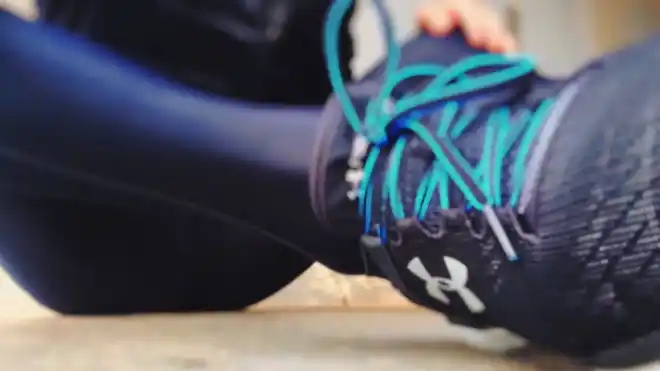
Leg and foot injuries are the most common in gyms. Even runners and cyclists are very prone to them.
- The cause is probably poor form, wrong workout surface or incorrect choice of footwear.
- Also, if your feet, hips, ankle or knee hurts and feels wobbly when you put all your weight on the affected leg, you have probably caused significant damage and should ditch your workout and rather make an appointment with your doctor.
Should you be concerned? If you hear a pop sound that is soon accompanied by pain, you need immediate medical treatment, followed by as much rest as your doctor deems necessary.
SIGN NO # 3: YOU HEARD SOMETHING POP
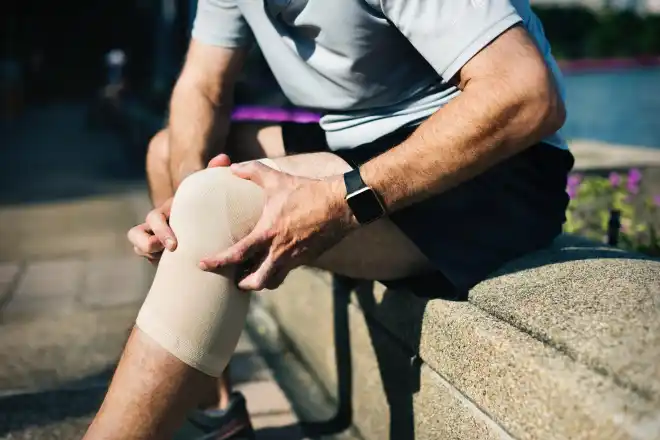
- Some acute exercise related injuries are accompanied by a popping sound.
- Example: tearing the anterior cruciate ligament in the knee, rotator cuff injury of the shoulder or MCL injury of the knee.
Should you be concerned? Any kind of pain and dysfunction in joints is a sign that you are causing a lot of stress to the joint, which is never good news.
SIGN NO # 4: YOU NOTICE PAIN AND SWELLING OF JOINTS
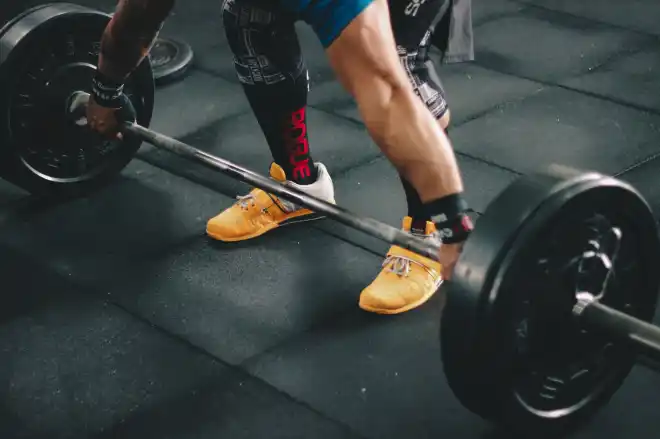
- Any kind of swelling is an indication that you have caused acute damage to the soft tissue or joint.
- However, sometimes joint pain isn’t immediately accompanied by swelling, and that’s when you have to be more careful. For example – when you work on your biceps, your muscles could be a little achy the next day but you shouldn’t find it hard to bend and use your elbow or wrist.
- It could be an Ulner Nerve compression, or Carpal Tunnel syndrome, where the nerve gets pinched due to stress.
Same goes for knees, ankles, hip joints and shoulder joints. Soreness in the joints should never be ignored; if you push yourself to exercise despite the pain, you could cause irreversible damage that will probably require a surgery to correct.
Should you be concerned? If you begin to notice that your tendons are abnormally painful and your muscles tire out easily during workout, take a break and get a check-up.
SIGN NO # 5: YOU FEEL UNUSUALLY TIRED
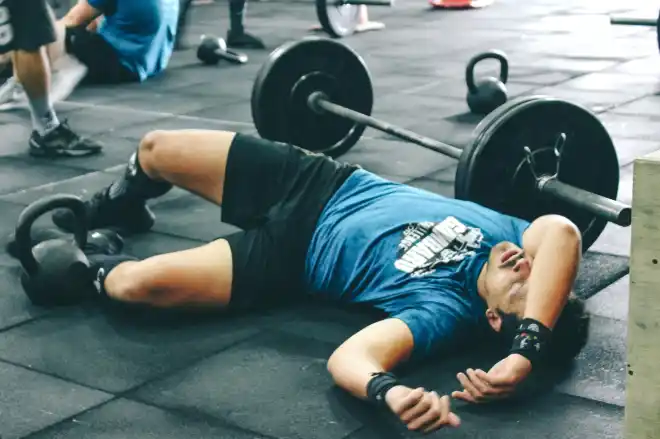
While fatigue is a result of extensive workouts, if you feel unusually tired throughout the rest of the day it could mean something else is wrong.
- It’s possible that you have a hormonal imbalance, an infection or even a thyroid problem.
- Get a blood report done before you get back to the gym.
- Especially if you are also running a fever, it means that your body is already battling with an infection and cannot currently cope with the extra stress that exercising will bring.
Should you be concerned? If you begin to feel nauseated and have a headache during an intensive workout session, seek medical help immediately.
SIGN NO # 6: YOU HAVE A HEADACHE OR START FEELING NAUSEATED

For fitness buffs who train hard no matter what the weather conditions are, it’s possible to make yourself prone to Hyponatremia.
- A potentially fatal medical condition, it is caused by an abnormally low sodium level in the blood.
- If you are working out in hot weather and drinking copious amounts of water to stay hydrated because you are sweating profusely, you could be diluting the sodium level in the blood to fall below normal.
- That is why it’s always a good idea to instead choose sports drinks which are enhanced with additional electrolytes if you exercise for over an hour every day during hot weather.
Should you be concerned? But if you begin to feel nauseated and have a headache during an intensive workout session, seek medical help immediately.
SIGN NO # 7: YOU NOTICE SHORTNESS OF BREATH

Believe it or not, it’s possible to bring upon yourself exercise-induced asthma.
- Sometimes, it could be a result of a respiratory infection that hasn’t cleared up completely before you went back to the gym, or could also mean that your lungs aren’t able to cope with the level of intensity your workout has achieved because you already suffer from asthma.
- If you find it hard to catch your breath mid-workout session, stop exercising and get some rest. Talk to your doctor and get a treatment plan in place before you begin exercising again.
Should you be concerned? A concussion can cause trauma to the brain. And even if you feel absolutely OK otherwise, it is highly recommended that you refrain from working out for a few weeks.
SIGN NO # 8: YOU SUFFERED A CONCUSSION IN THE RECENT PAST
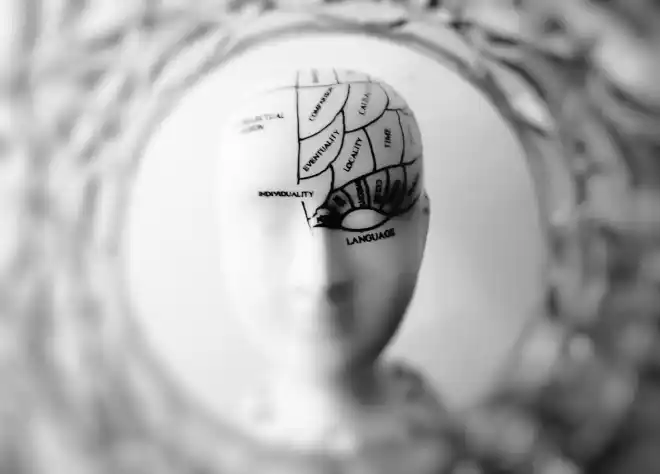
Your brain will need time to heal properly before you start exercising again, as there is always a risk that you could get injured again which could prove to be fatal.
- Today, Rhabdomyolysis is making headlines and has many workout junkies paranoid.
- While this medical condition that causes breakdown of muscles during exercise leading to kidney damage is very rare, it’s still a good idea to always be safe rather than being sorry.
Improper training, over training and training while sick will all be cause for trouble, regardless of what your fitness pursuits really are.
So if your gym instructor encourages the attitude of ‘push yourself to the limit, and then push some more’, it is your responsibility to ensure that your workout plan is smart and safe, and to always focus on quality over quantity.

